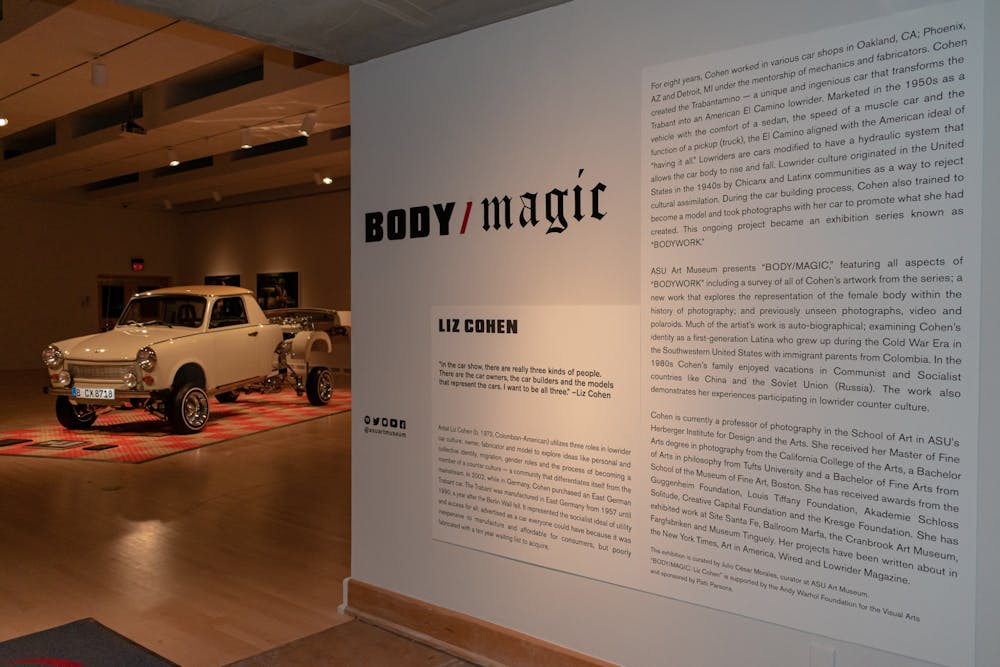In "Body/Magic: Liz Cohen," a new exhibition at the ASU Art Museum, artist and College of Art associate professor, Liz Cohen shines a light on issues of femininity, immigration and nonconformity through her photos, videos and displays.
Inspired by how people navigate their surroundings, Cohen's exhibition utilizes a variety of artistic mediums to illustrate the struggle to belong. "That, at the core describes a lot of the motivation for my art," Cohen said.
Director of the ASU Art Museum, Miki Garcia, defined the exhibition by its "hybridity, curiosity and freedom." She said Cohen's work is "an excellent example of how an artist uses imagination, mentorship and collaboration in creating compelling works of art.”
The exhibition opened Jan. 16 and runs Friday to Sunday until May 29. It features photography, videography and displays consisting of items like shoes and a car. Cohen has received multiple awards for her work and is most widely known for her project “BODYWORK” in which she transformed an aging Trabant car into an El Camino lowrider, and also transformed herself into a bikini model and car customizer, according to her biography.
“The distance between the way we see ourselves and the way other people see us can be a source of pleasure or pain," Cohen said. The further apart the two get, the more people feel misunderstood, she said, and that understanding gave her the perspective that influences her work.
Cohen said she draws on personal experiences and history to create her artwork. She said her work resonates with a wide variety of people including feminists, first-generation students and BIPOC.
“I've always had an interest in people that like to be seen and people who go to extraordinary lengths to be their most authentic selves, even in the face of oppression or repression," Cohen said. "I look at people that I admire and the way that they have navigated through society. My work has a lot to do with belonging, specifically the struggle to belong, which I think is one that we all share."
The museum has taken measures to ensure the safety of its patrons and staff during the pandemic, like offering free tickets for specific times, requiring facial coverings and social distancing, and checking temperatures. Through social media, the museum posts photos of the art so patrons who do not feel comfortable coming in person can still enjoy the art pieces the museum has to offer.
Julio César Morales, the curator for the exhibition who has been working with Cohen on the project since 2018, said normally curators "want intimacy" and "want the work to speak to the audience and create a connection. So I had to figure out how to achieve that feeling with COVID restrictions.”
Morales said he was able to achieve his goal of creating an intimate setting despite the challenges created by the pandemic.
Garcia said the museum works to curate "art and artists in the pursuit of social justice and community wellbeing" to display.
"Liz Cohen’s work has the ability to address issues of identity, sense of place and purpose, which resonate for so many of us," Garcia said.
Reach the reporter at lkobley@asu.edu and follow @LKobley on Twitter.
Like The State Press on Facebook and follow @statepress on Twitter.
Continue supporting student journalism and donate to The State Press today.

Lauren Kobley is a reporter for the Community and Culture desk at The State Press. She has previously interned with the Fountain Hills Times.




